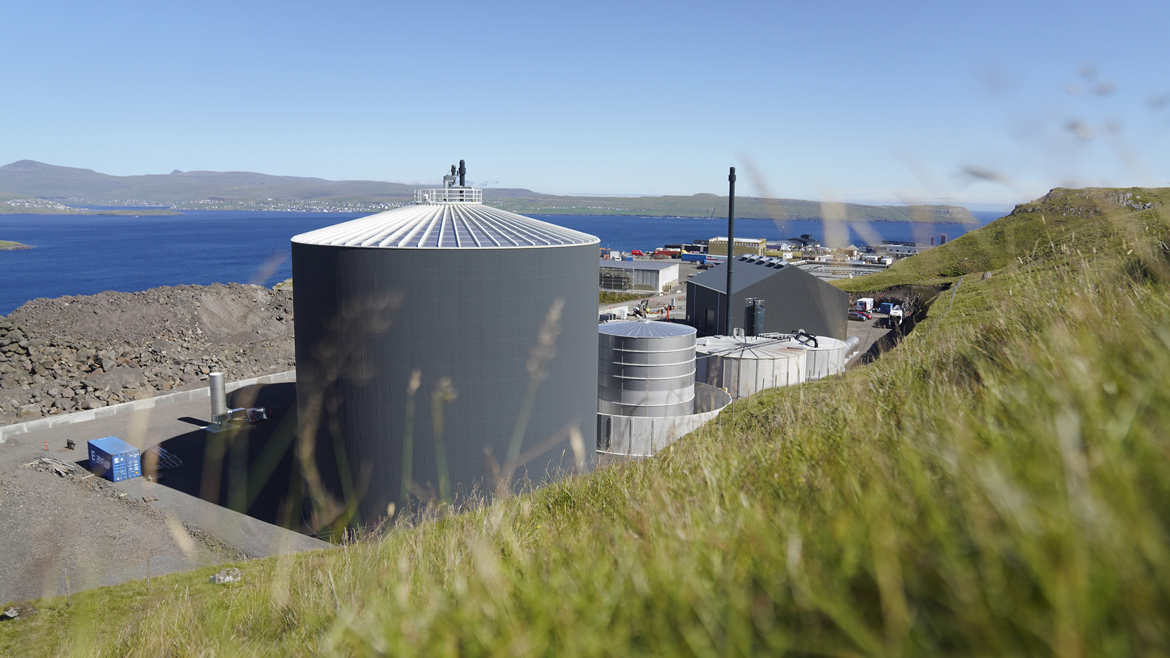Eco-efficiency is at the heart of our operations
Did you know:
In 2020, we recycled approximately 60,000 cubic meters of water per hour in our hatcheries, and we provided about 1,900 homes in the Faroe Islands with electricity from biogas production.

Continuous population growth makes preservation of earth’s resources more important than ever. At Bakkafrost, eco-efficiency is at the heart of everything we do.
In recent years, we have introduced several measures focusing on eco-efficiency and circular economy. Bakkafrost was one of the first salmon farmers in the world to start recirculating water at our hatcheries, currently in the Faroe Islands recycling up to 99.7% of the water harvested to reduce pressure on the demand for water.
In 2020, we recycled approximately 60,000 cubic meters of water per hour in our hatcheries, we introduced Recirculating Aquaculture Systems (RAS) in some of our locations in Scotland (already in place in the Faroe Islands), and we reduced water usage by 95% at our site Applecross by introducing RAS.
Bio-waste is indisputably one of the biggest challenges to the industry of salmon farming. With the construction of biogas plant FÖRKA, Bakkafrost became a first mover within the industry to utilize bio-waste from hatcheries for energy production, currently providing about 1,900 homes in the Faroe Islands with electricity. Leftovers from the biogas production are used for natural liquid fertilizer/bio-organic manure in the Faroese agriculture, providing the fields in the Faroes with vital minerals, and at the same time reducing consumption of imported fertilizers.
We are committed to sustainable use of all raw material and continue to monitor the market for new solutions to improve eco-efficiency at each stage of the value chain. For example, we have invested in cameras to optimize feeding on sea sites. Combined with continuous research on the composition of the elements in the fish feed, we strive to grow our capacity while keeping the consumption of raw material at a minimum, living up to the definition of eco-efficiency to ‘do more with less’.